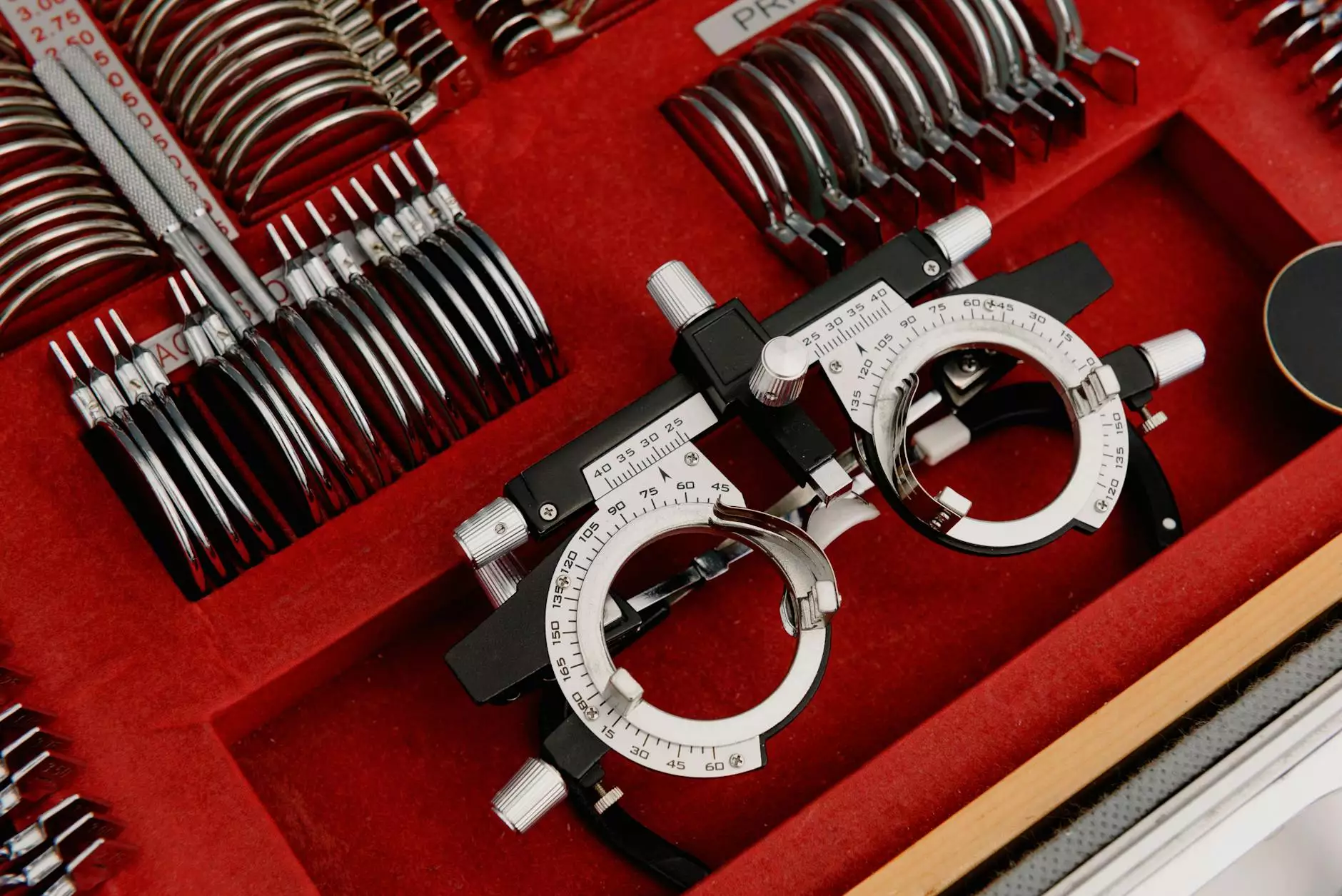Understanding Needle Holder Medical: A Vital Tool in Healthcare

In the ever-evolving landscape of healthcare, the tools and instruments used by doctors and healthcare professionals are crucial in ensuring effective patient care. Among these tools, the needle holder medical occupies a pivotal role in surgical environments. This article delves deep into the functionality, importance, and various types of needle holders, highlighting their significance in medical practices.
What is a Needle Holder?
A needle holder is a specialized surgical instrument designed to securely grip a needle during suturing or other medical procedures. It serves as an extension of the surgeon's hand, allowing for precision and control when handling needles. Most needle holders have a locking mechanism and a ratchet system that ensures a firm grip on the needle, minimizing the risk of accidental needle slips during procedures.
Key Features of Needle Holders
- Ergonomic Design: Most needle holders are designed to fit comfortably in the surgeon’s hand, reducing fatigue during extended procedures.
- Sturdy Grip: The textured jaws of needle holders provide a secure grip on needles, enhancing control.
- Locking Mechanism: A reliable lock ensures that the needle remains secure, preventing accidental release.
- Material Quality: Needle holders are typically made from stainless steel, making them durable and resistant to corrosion.
The Importance of Needle Holders in Surgery
In surgical settings, precision is paramount. The use of a needle holder medical not only enhances the surgeon's ability to perform complex suturing tasks but also contributes to the overall efficiency and safety of the procedure. Here's how needle holders make a difference:
1. Enhanced Precision
Needle holders provide remarkable precision, allowing surgeons to control the angle and depth of needle insertion. This level of control is vital during delicate procedures, such as stitching deep tissue or suturing small blood vessels.
2. Improved Safety
By securely holding the needle, needle holders significantly reduce the risk of accidental needle sticks, which can pose serious health risks to both patients and healthcare providers. The ergonomic design also helps to minimize hand strain, which can occur during long surgeries.
3. Versatility in Various Procedures
Needle holders are versatile instruments that can be used in various surgical specialties, including orthopedics, cardiothoracic surgery, and even in everyday procedures within medical centers and clinics. Their adaptability is a testament to their essential role in modern medicine.
Types of Needle Holders
There are different types of needle holders available in the market, each designed for specific applications:
1. Mayo-Hegar Needle Holder
The Mayo-Hegar needle holder is one of the most commonly used types. It features a straight and robust design, ideal for general suturing tasks. Its locking mechanism ensures that the needle is firmly held in place.
2. Crile-Wood Needle Holder
This needle holder has a more delicate construction and finer jaws, making it suitable for intricate procedures requiring a precise grip on smaller needles.
3. Castroviejo Needle Holder
Preferred in ophthalmic procedures, the Castroviejo needle holder allows for fine control and precision. Its design is tailored for delicate surgical interventions.
4. DeBakey Needle Holder
This needle holder features a special design to allow for a superior grip on both the needle and suture, making it a favorite amongst cardiovascular and vascular surgeons.
Maintenance of Needle Holders
Maintaining the quality and functionality of needle holder medical instruments is essential for their longevity and performance. Here are some tips for proper care:
- Cleaning: Always clean the needle holder thoroughly after each use to remove any biological material. Use a suitable cleaning solution and ensure no residue remains.
- Sterilization: Autoclave the needle holders to ensure they are sterile before the next use, preventing any chances of infection.
- Inspection: Regularly inspect needle holders for signs of wear or damage. Replace them if the jaws are misaligned or if the locking mechanism fails.
Why Choose Grey Medical for Your Needle Holders?
At grey-medical.com, we prioritize quality, innovation, and reliability when it comes to medical instruments. Our range of needle holder medical tools meets the highest industry standards, ensuring that healthcare professionals can perform their duties with confidence. Here’s why you should consider choosing us:
1. Quality Assurance
All our needle holders undergo rigorous quality checks, ensuring they meet the demands of modern surgical practices. We use premium materials for durability and functionality.
2. Wide Selection
We offer an extensive variety of needle holders suitable for different surgical specialties. Whether you need a Mayo-Hegar or a Castroviejo, we have it all.
3. Competitive Pricing
Affordability is a key aspect of our business. We provide high-quality instruments at competitive prices, making it easy for healthcare facilities of all sizes to procure the tools they need.
4. Exceptional Customer Support
Our dedicated customer support team is always ready to assist you with your inquiries, ensuring you have the best experience possible when shopping with us.
Conclusion: The Indispensable Role of Needle Holders in Healthcare
Needle holders represent an essential component of the surgical toolkit. Their versatility, precision, and safety features make them indispensable in various medical settings. At grey-medical.com, we are committed to providing healthcare professionals with the highest quality needle holders, contributing to improved patient outcomes and enhanced surgical efficiency. By understanding the intricate details about needle holders and recognizing their impact on the surgical process, healthcare providers can better appreciate these crucial instruments that facilitate better patient care.
In summary, the role of needle holder medical instruments cannot be overstated in today’s healthcare environment. By investing in quality tools and staying informed, practitioners can ensure that they meet the fast-paced demands of modern medicine with confidence and skill.









